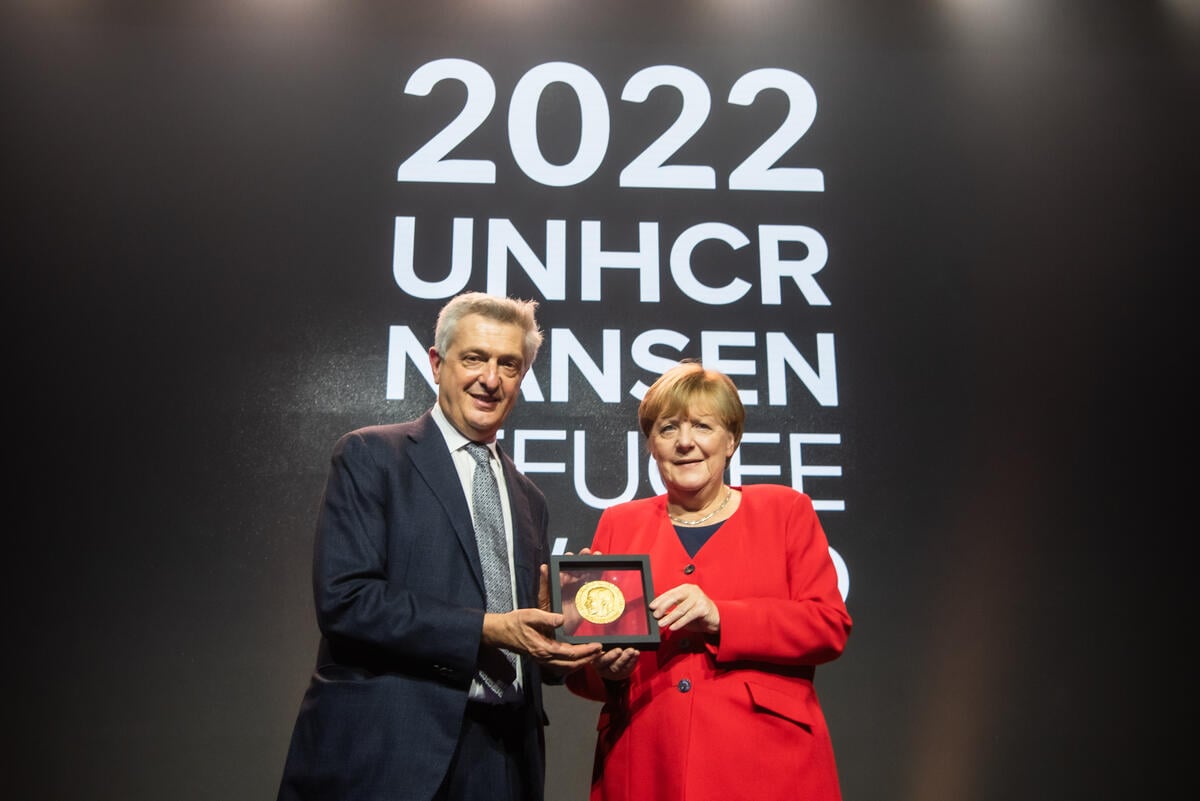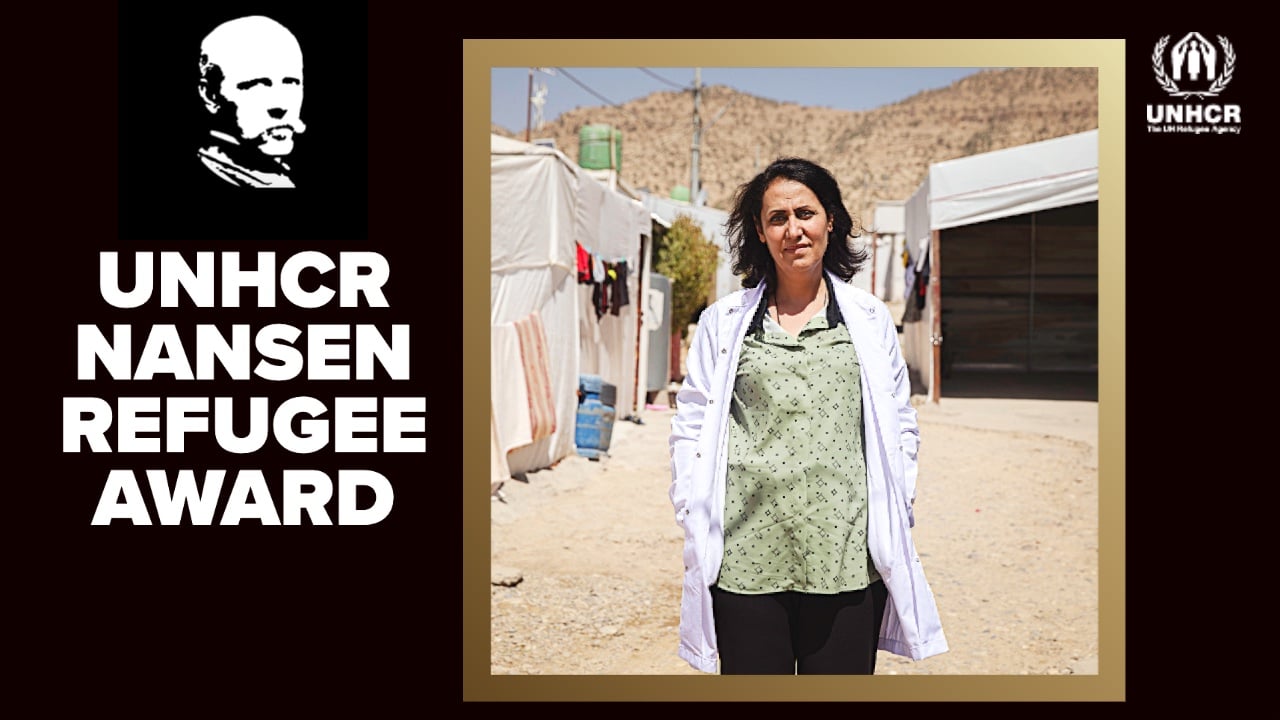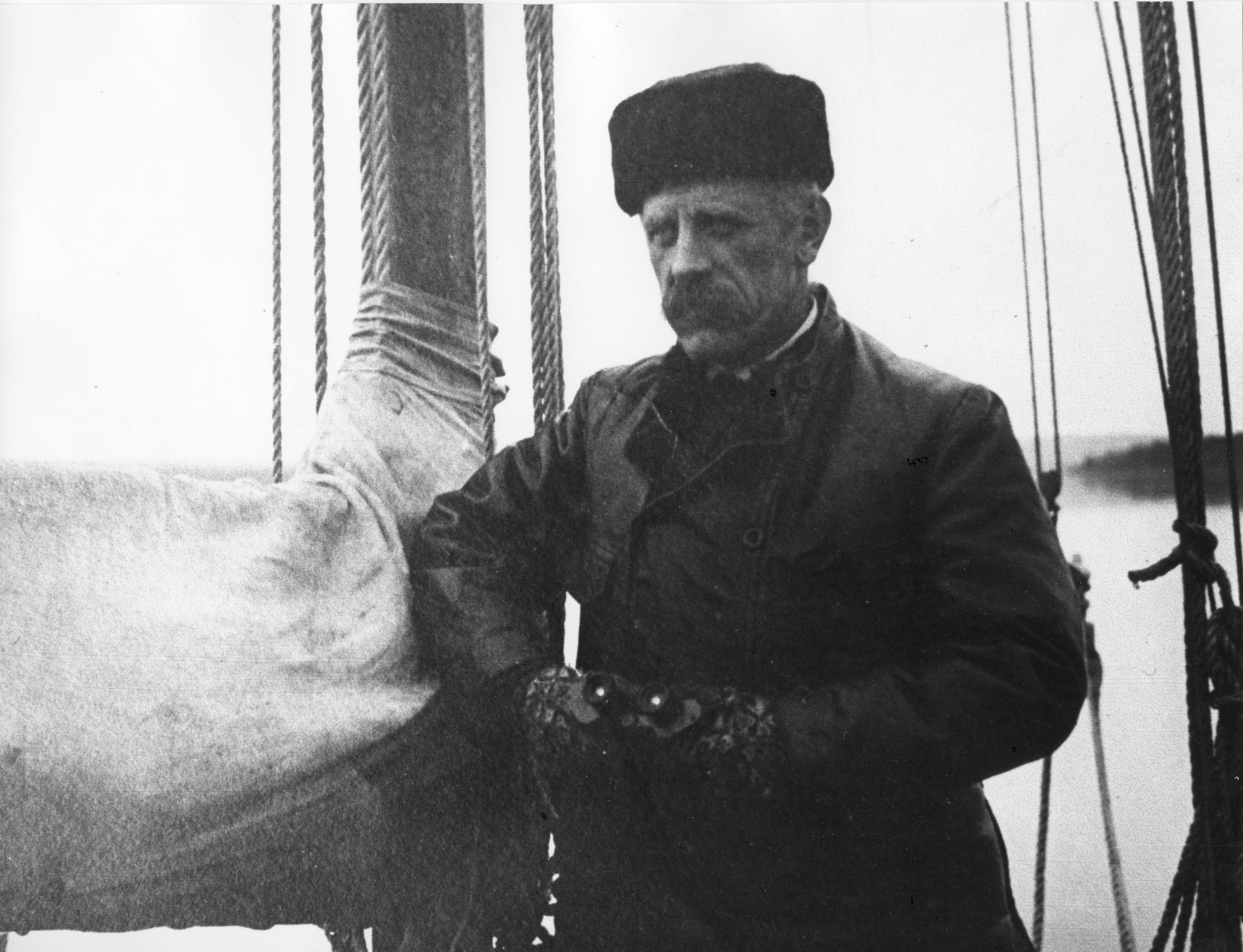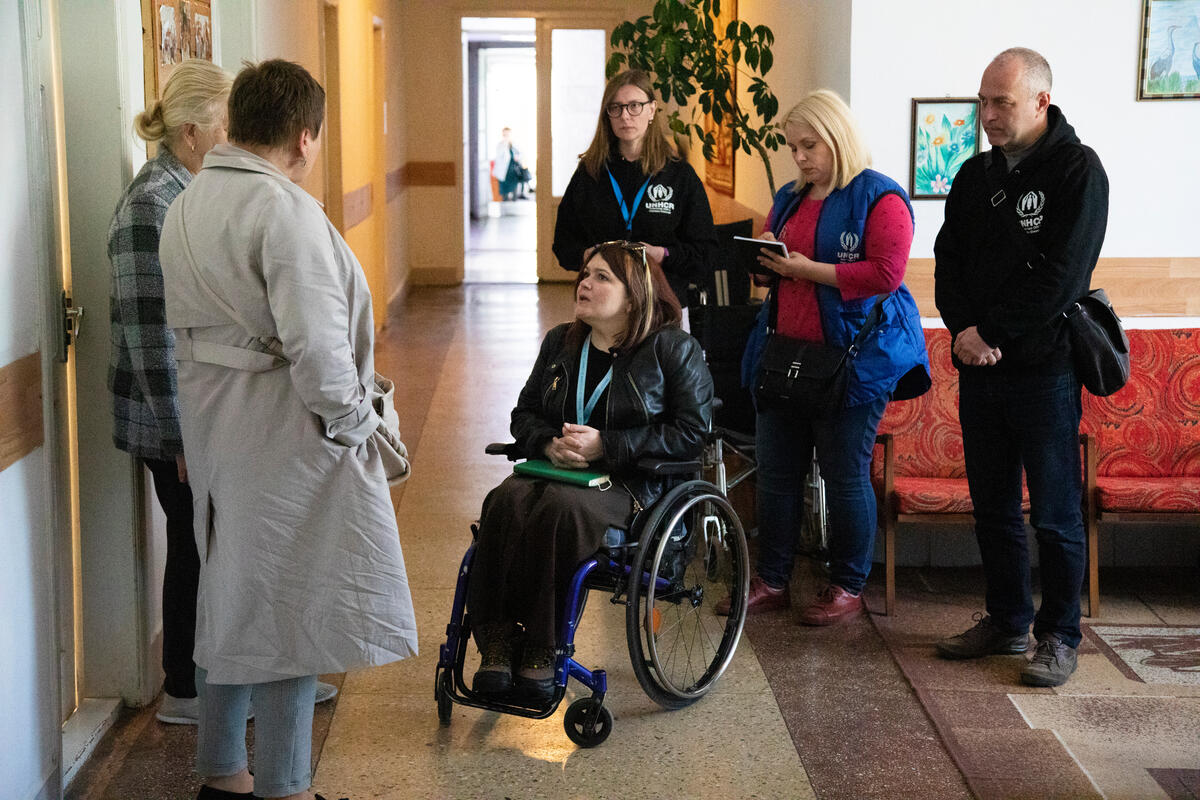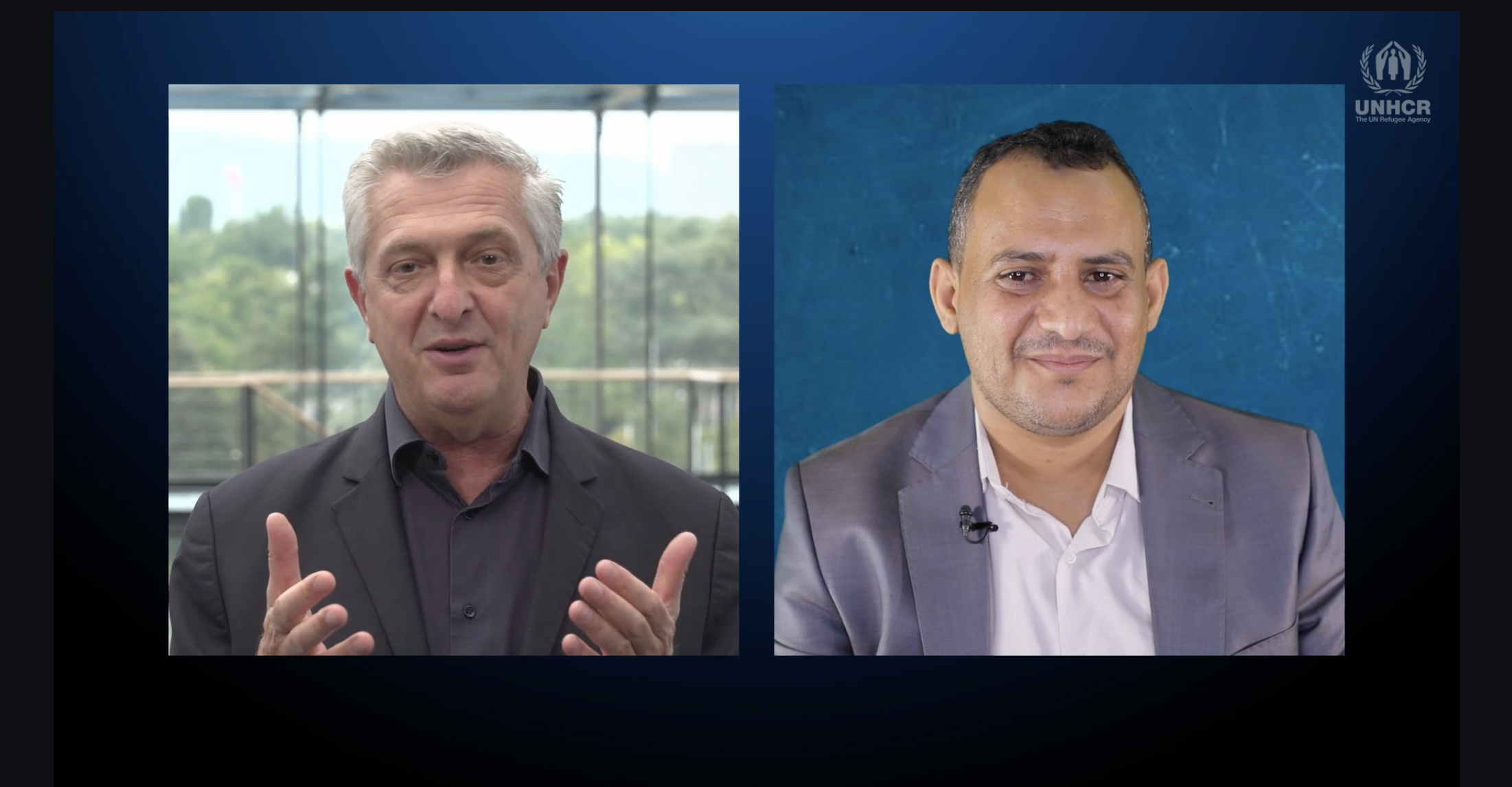UNHCR names Afghan refugee teacher Aqeela Asifi its 2015 Nansen Refugee Award winner
UNHCR names Afghan refugee teacher Aqeela Asifi its 2015 Nansen Refugee Award winner
GENEVA, Sep 15 (UNHCR) - Afghan refugee teacher Aqeela Asifi, who has dedicated her life to bringing education to refugee girls in Pakistan, has won the 2015 UNHCR Nansen Refugee Award.
Aqeela Asifi, 49, is being recognised for her brave and tireless dedication to education for Afghan refugee girls in the Kot Chandana refugee village in Mianwali, Pakistan - while herself overcoming the struggles of life in exile. Despite minimal resources and significant cultural challenges, Asifi has guided a thousand refugee girls through their primary education.
Afghanistan is the largest, most protracted refugee crisis in the world. Over 2.6 million Afghans currently live in exile and over half of them are children. Access to education is vital for successful repatriation, resettlement or local integration for refugees. Yet globally it's estimated that only one in every two refugee children are able to go to primary school and only one in four attend secondary school. And for Afghan refugees in Pakistan this falls further, with approximately 80 per cent of children currently out of school.
UN High Commissioner for Refugees, António Guterres paid tribute to the efforts of the winner of the global humanitarian award: "Access to quality and safe education helps children grow into adults who go on to secure jobs, start businesses and help build their communities - and it makes them less vulnerable to exploitation and abuse. Investing in refugee education will allow children to play a part in breaking the cycle of instability and conflict. People like Aqeela Asifi understand that today's refugee children will determine the future of their countries, and the future of our world."
UNHCR has released a contextual report Breaking the cycle: Education and the future for Afghan refugees, to coincide with today's announcement. The report outlines the challenges that children, especially refugee girls, face in accessing education in Pakistan.
Asifi is a former teacher who fled from Kabul with her family in 1992, finding safety in the remote refugee settlement of Kot Chandana. Asifi was dismayed by the lack of schooling for girls there. Before she arrived, strict cultural traditions kept most girls at home. But she was determined to give these girls a chance to learn. Slowly but surely she convinced the community, and began teaching just a handful of pupils in a makeshift school tent. She copied out worksheets for the students by hand on sheets of paper. Today the tent school is a distant memory and over a thousand children are attending permanent schools in the village thanks to her early example.
She believes that instilling a belief in the power of education for girls in this generation will transform the opportunities of the next. "When you have mothers who are educated, you will almost certainly have future generations who are educated," she said. "So if you educate girls, you educate generations. I wish for the day when people will remember Afghanistan, not for war, but for its standard of education."
"Access to education is a basic human right. Yet for millions of refugee children it is a lifeline to a better future which they have been heartbreakingly denied," said UNHCR Goodwill Ambassador, Khaled Hosseini.
"I have met many young refugees who have been torn from everything that makes them feel safe: their homes, their families, their friends and their schools. Investing in their education is an investment in their future, giving them hope and the chance to one day be a part of rebuilding their broken home countries.
"UNHCR is working to give all refugee children the chance to go to school. Aqeela Asifi has shown us all that with courage change can happen. We must continue her fight."
Since the fall of the Taliban in 2001 5.7 million Afghans have returned home, yet insecurity still remains. UNHCR has embarked on a strategy to assist remaining Afghan refugees to return home and a key element of this is ensuring they can access quality education. A ministerial level meeting in early October in Geneva will seek to advance this strategy with key regional partners.
UNHCR's Nansen Refugee Award honours extraordinary service to the forcibly displaced, and names Eleanor Roosevelt, Graça Machel and Luciano Pavarotti among its laureates. The 2015 ceremony will be held on 5 October in Geneva, Switzerland. Speakers and performers at the event will include UNHCR Honorary Lifetime Goodwill Ambassador Barbara Hendricks, UNHCR Goodwill Ambassador Ger Duany, Unicef Goodwill Ambassador and singer Angelique Kidjo and visual artist Cedric Cassimo.
For further information or interview requests :
For media inquiries concerning the 2015 Aqeela Asifi please contact:
Leona Everitt at [email protected]
For inquiries concerning the Afghan refugee situation in general please contact:
Andy Needham at [email protected]
For inquiries regarding Afghan refugees in Pakistan please contact:
Duniya Aslam Khan at [email protected]
For inquiries concerning the Nansen Refugee Award and ceremony please contact:
Leigh Foster at [email protected]
A special report "Breaking the Cycle: Education and the Future of Afghan Refugees" is being released to coincide with the announcement. It can be downloaded from: http://www.unhcr.org/nansen15media
A multimedia package including case studies, photographs, B roll and further information can be accessed here: http://www.unhcr.org/nansen15media
About UNHCR's Nansen Refugee Award:
UNHCR's Nansen Refugee Award recognizes extraordinary humanitarian work on behalf of refugees, internally displaced or stateless people. The award includes a commemorative medal and a US$100,000 monetary prize. In close consultation with UNHCR, the laureate uses the monetary prize to fund a project that complements their existing work.
Nominations are now open for the 2016 Award.
About UNHCR:
The United Nations High Commissioner for Refugees (UNHCR), was established on December 14, 1950 by the United Nations General Assembly. UNHCR safeguards the rights and well-being of refugees and stateless people. In more than six decades, the agency has helped tens of millions of people restart their lives. UNHCR is on the front lines of the world's major humanitarian crises, including Syria, Iraq, Central African Republic, Afghanistan, South Sudan, Democratic Republic of the Congo, and countless other emergencies.


